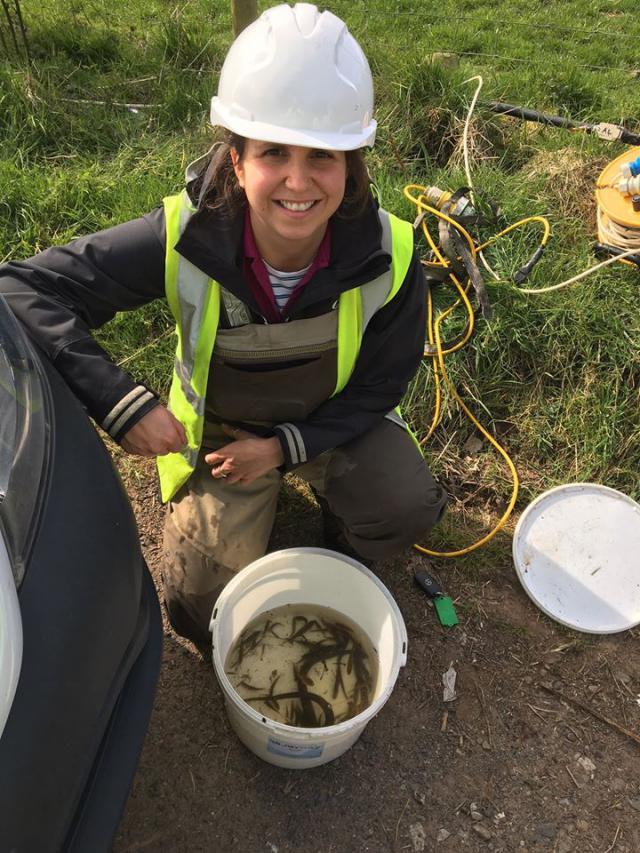Latest News
Temperature loggers downloaded this month
GFT are currently in the process of downloading data from temperature loggers which are in 20 sites across the river Bladnoch. The data gets downloaded twice a year; once in April and once in October.
The New Sparling Model Has Arrived!
GFT commissioned a Bolton based taxidermist, Phillip Leggett to create a realistic sparling model. This model accurately represents three adult sparling, which grow up to 30cm and are still present in the River Cree.
Fisheries Management Scotland- Annual Report
GFT recently attended the Fisheries Management Scotland Conference 'Salmon and People in a changing world.

